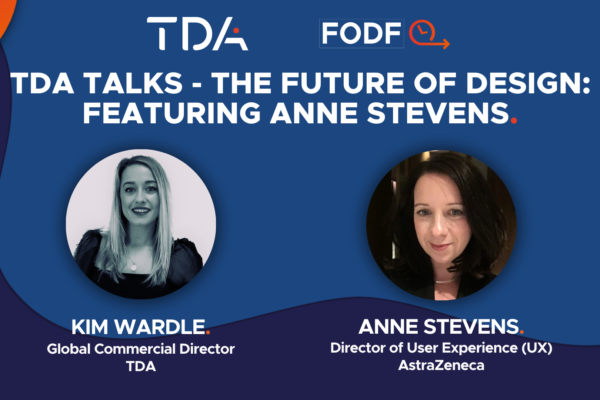Most people would agree that having a job interview is a daunting prospect. Whilst being a test of your competency and ability to conduct yourself professionally, it is also a step into the unknown. Nevertheless, the job interview is a crucial feature or most, if not all job applications, and an art that candidates have to work hard to master during their careers.
According to a recent study it takes it takes 10-15 interviews on average for people to secure a job role. With this in mind we have annotated some frequently asked job interview questions to provide you with useful tips on how to approach them to convert your next interview from a daunting prospect to an experience that is rewarding and genuinely enjoyable.
So what are the most frequently asked interview questions and how should you approach them?
In this blog post, we’ll teach you how to answer the interview question:
- Tell us about yourself
- What are your career goals?
- What are your strengths?
- Tell me about a time you worked well under pressure?
- Tell us about a time you have worked well as part of a team?
- Tell us about a time when you responded to criticism positively.
- What are your weakness?
- What do you know about us?
- What trends do you think are affecting our industry
- Why do you want to work for us
- What are your salary expectations?
- Why are you leaving your current job?
- What other types of jobs or companies are you currently considering?
Before we get into it, here is Gary Charles discussing why preparation is so important.
How to answer “Tell us about yourself”
Employers tend to ask this question first. They will first want some background and to find out who they are talking. Whilst being a potential icebreaker, it also presents a great opportunity for you to build rapport with the interviewer[s], and perhaps establish common interests. A good response to this question may follow this structure:
- Begin by explaining your current situation, whether it be a student, and if so, what you are studying, and any job role that you are currently in
- Provide details of previous work experience or studies that are relevant to the role you are applying for
- Talking briefly about yourself such as where you are from, any hobbies or interests that you have, any accomplishments, and your aspirations
How to answer: “What are your career goals?”
There is no doubt that the employer will want to delve further into what your future goals are. The question they ask will come in the form above or another format such as “Where do you see yourself in 10 years?” or “What area do you see yourself specializing in?”. Employer’s will want to know that you have intriguing goals that fit their criteria. You may have a specific job role in mind. Alternatively, you may be on a journey to find a role that interests you and enables you to develop core skills.
A good response to this category of question will identify what you want to achieve and why you want to achieve it. This may be because you enjoy working with customers, have a strong interest in a specific discipline, have a calling to help the vulnerable, or because you have a good commercial acumen. You will then need to explain why you feel this way before detailing the skills that you have developed so far along with how you feel the job role will help you enhance these.
How to answer: “What are your strengths?”
On average approximately 20% of job applicants manage to reach the interview stage of the application process. This means that you should give yourself a pat on the back for getting this far. The employer will also know that you are a good candidate for achieving this. They would not have scheduled the interview if they did not.
Nevertheless, they will still want you to tell them what you think your strengths are and why you feel you will meet their standards. This is something that you will have to demonstrate with reference to your previous experience. It is at this stage that I want to introduce you to the STAR structure if you are not familiar with this. Once mastered, this structure will be your friend in the interview room (or video call).
The following is a worked example of the STAR structure used to demonstrate the strength of being able to multitask:
S (Describing the Situation)- In my previous role my manager told the staff during a staff meeting that a valued member of the team would be on sick leave for several weeks. It was a busy time of year for the business and there was a need for someone in the team to take on additional work. I agreed to do this and help the business in its time of need.
T (Explaining the Task)- I needed to understand the tasks that I had to on behalf of my fellow member of staff and prioritize these along with my tasks so that deadlines were met.
A (Detailing the Action taken)- My manager briefed me on the additional work that I was to undertake. Having taken note of these I drew up a list categorizing my tasks as ‘urgent’, ‘medium importance’, or ‘flexible’. This provided me with a framework that helped me stay on track with the work I needed to do.
R (Outlining the Result)- This system enabled me to complete the tasks in a timely fashion and ensured that the business did not fall behind. It also provided me with a great insight into my colleague’s role so that I could be of further assistance in the future
Another technique that can be used is C.A.R, here is John Lovig to tell you more:
How to answer: “Tell us about a time when you worked well under pressure”
This is an example of a specific skill-based question. These kinds of question usually start with “tell us about a time when” and should be answered using the STAR approach outlined above.
Most job roles involve working under pressure and an employer may assess the extent to which you can deal with pressure. The interview in itself will give them an indication of this, but they may also want you to comment on your ability to handle pressure.
There may have been a situation where you were working to a deadline that was fast approaching. You may have had to deal with a difficult customer or a conflict in the workplace. These instances are likely to have brought about pressure. A good answer to this interview question would be one that outlines the action you took to handle the situation to ensure that a satisfactory outcome was reached.
How to answer: “Tell us about a time when you worked well as part of a team”
Being a good team player is a trait that most, if not all, employers will attach a lot of value to. You can demonstrate that you can work well as part of a team by recalling a time that you communicated clearly to your team in the pursuit of a desired outcome or made sacrifices to ensure that the interests of the collective were prioritized. These may arise out of previous work experience and even hobbies such as being part of a sports team.
How to answer: “Tell us about a time when you responded to criticism positively”
An employer may ask this question to assess your ability to take feedback on board and use it to improve your performance. This situation is likely to have arisen in any previous work experience you have which has involved a colleague, perhaps one with more experience, critiquing how you approach something in your role so that you could be more efficient or be more successful. Your answer should use one of these experiences and explain the action taken to adapt.
How to answer: “What are your weaknesses?”
You must also enter interviews with an awareness of the areas that you could improve on. An important skill that will help you throughout your career is the ability to honestly review your own performance so you can adapt and improve over time. The employer may test your ability to this during the interview by asking you to give details of any weaknesses that you have or by asking you this in another format such as “Why would you not hire yourself?”.
In order to answer this question, you will need to start by focusing on a weakness. However, if you focus solely on describing this weakness you may give the employer reasons to not hire you. The trick to answering this kind of question strongly is to ensure a positive answer is given. This can be done in one of two ways:
- Focusing on a weakness that can to some extent be viewed as a strength. For example, you may approach your research thoroughly with the aim of leaving no stone unturned. While this is a good thing in that you will likely obtain a rounded understanding of the area that you are researching, there would also be a risk that you chase leads that are unhelpful or perhaps not fully relevant to your brief. This will waste time and could make it more difficult for you to meet deadlines. Having identified these risks in your interview answer, you can close your answer by stating that you are conscious of these risks and continuously strive to mitigate against them when approaching tasks.
- Focusing on a weakness and the steps that you are taking to overcome it. You may have a fear of public speaking, which is common. If you have gained experience which tests this skill you can emphasize the fact that you strive to convert this weakness into a strength. This will demonstrate that you are person who takes initiative and are determined to enhance your skillset.
How to answer: “What do you know about us?”
In order to prepare for the interview, you will need to research the employer. They will want to know that you at least have a basic understanding of their business. You will need to have this understanding so that you can convince the employer that you are a good fit for them.
How do you research an employer? It is likely that there will be online resources available to you. These may include the employer’s website which will give an overview of what the business does, its culture, and its history, blog posts on the website that may focus on current issues in the employer’s field or on what it is like working for the employer, and news articles that the employer may have appeared in. The employer may also provide opportunities for you to meet current members of staff through careers events or webinars. Forming networks with those currently working in industries that you are interested in will provide a great insight into the business, what it is like to work in the area, and any challenges the business faces.
When gaining information about the employer, you could consider the following:
- Work that the business does or the areas that it specializes in
- The culture of the business
- Where the employer is located
- When the business was formed
- The business model and management structure that the business adopts
- The market that the business operates in, and the competition faced
- Work the business does in the community and other things that it does to demonstrate its commitment to corporate social responsibility
- The future plans that the business has
With this information, you should be able to provide an answer that shows you have a good understanding of the employer’s business. This is all you will need to demonstrate. They will not expect you to be an expert!
Doing your research is especially important when you are interviewing with a start-up, here is Bradley Andrews with more information:
How to answer: “What trends do you think are affecting our industry?”
It is possible that the employer will ask you a question that will test your current awareness and commercial awareness. A good answer to this question is one that demonstrates a good understanding of the market forces that are impacting the industry which is then linked back to the employer’s business.
An understanding of the market is something that can be developed through academic studies and gaining experience in the field. These can also be supplemented by reading publications from institutions with oversight in the field, businesses in the field (including your prospective employer), peer reviewed journal articles, and credible news articles. Podcasts, seminars, and webinars can also provide insightful information.
Here is David Lines on why publications are so important:
How to answer: “Why do you want to work for us?”
The answer to this question will build on much of what has been discussed above and should focus on the following areas:
- Why you are interested in the position. You will need to have reviewed the job specification before the interview and understand what the role will involve, any criteria related to previous experience or qualifications, and what the employer will expect of you in the role. With this information you should be able to explain with reference to your existing skillset and interests why you feel as though you are a good fit for the role by linking these to the information provided in the job specification.
- Why you are interested in the employer’s business. The information you will have gained about the employer will help you highlight what intrigues you about the business and what value you can bring to the business’s initiatives.
- What you are seeking to gain from the role. By understanding the role and what the employer expects from those in the role, you should be in a position to discuss how working in the role will enable you to enhance your skillset. Your understanding of the business, in particular its business model, management structure, and future plans, you should also be in a position to explain why you feel as though you can be a part of the employer’s long-term plans and utilize career progression opportunities within the organization.
Need more information on the company? Don’t forget to ask. Here is Craig Hulls with more information on why you can always turn to your recruiter.
How to answer: “What are your salary expectations?”
Over 39% of interviewees state that their jobs searches are mainly remuneration motivated. You can research into the salaries for similar roles in the same labor market. Keep in mind your salary will depend on multiple factors such as the employer’s location, your experience, and your qualifications. This question is asked to check that your expectations align with what the employer would expect to pay. You may use your previous experience and refer to your previous earnings to substantiate any expectations that you have.
How to answer: “Why are you leaving your present job?”
An employer may ask this question to delve into your motivations. Your reason for leaving your previous role may be because you want a new challenge. If so, ensure that you explain why you want the role that you have applied for to be your next challenge. Your departure may be because of a range of other factors such as following a home move or a redundancy. In any case, make sure you show why you are interested in the new role and the employer and always ensure that you answer this question positively by not saying anything negative about your previous role.
How to answer: “What other types of jobs or companies are you currently considering?”
This question may also be asked by an employer so that they can learn more about your motivations. Most importantly, you do not want to convey a message that you are applying for as many jobs as possible with the hope that you are successful in at least one application. In this case, an employer may feel as though you do not have a genuine interest in the role. Applying for numerous roles may also make it difficult for you to tailor your application to specific roles and specific organizations. It is not necessarily a bad thing to admit that you have applied for multiple roles, but you must ensure that your application for each role is tailored to it and that you would be committed to the role in the long-term if you are successful.
What to say when you don’t know how to answer a question in an interview:
Turn the tables: Some ideas of questions you can ask the Interviewer:
The interviewer will almost certainly give you the opportunity to ask questions about the role and the organization at the end of the interview. This will give you the chance to show that you are committed want to learn. Remember, there will be a limited amount of time to ask questions, so prioritize questions based on what further information you would like to gain. You may consider asking any of the following questions:
- Why has the position become vacant?
- How will the position evolve in x year’s time?
- What opportunities are there for training/career development?
- What could I expect to do in the first 6 months?
- How would you describe the ideal person for this job?
- What are the long-term opportunities for progression?
- What was it in my CV that interested you?
- What makes your company different from your competitors?
- Why did you join and why have you stayed?
- What do you see about the best aspects of working here?
- Do you think I can do the job?
- Do you think my personality will fit in with the team?
- Where do we go from here?
In conclusion, the job interview process can be a nerve-wracking thing to do. However by preparing answers to common questions and researching the organisation, you can feel more confident and in control or the process.
Remember to focus on your qualifications, experience, and skills, and how they align with the requirements of the position. By being well-prepared and presenting yourself in a positive light, you’ll increase your chances of landing the job you want.
Here is our very own Commercial Director, Kim Wardle, to give you her 3 Golden Rules of interviewing:
The TDA Recruiters are always on-hand to provide you with help for your interviews and can also provide guidance on your resume and cover letter. All you need to do is reach out. Good luck!
If you’re on the hunt for a new role in Tech, Design, Product, Cyber Security or Data, be sure to check out our job board and register your resume with us.







